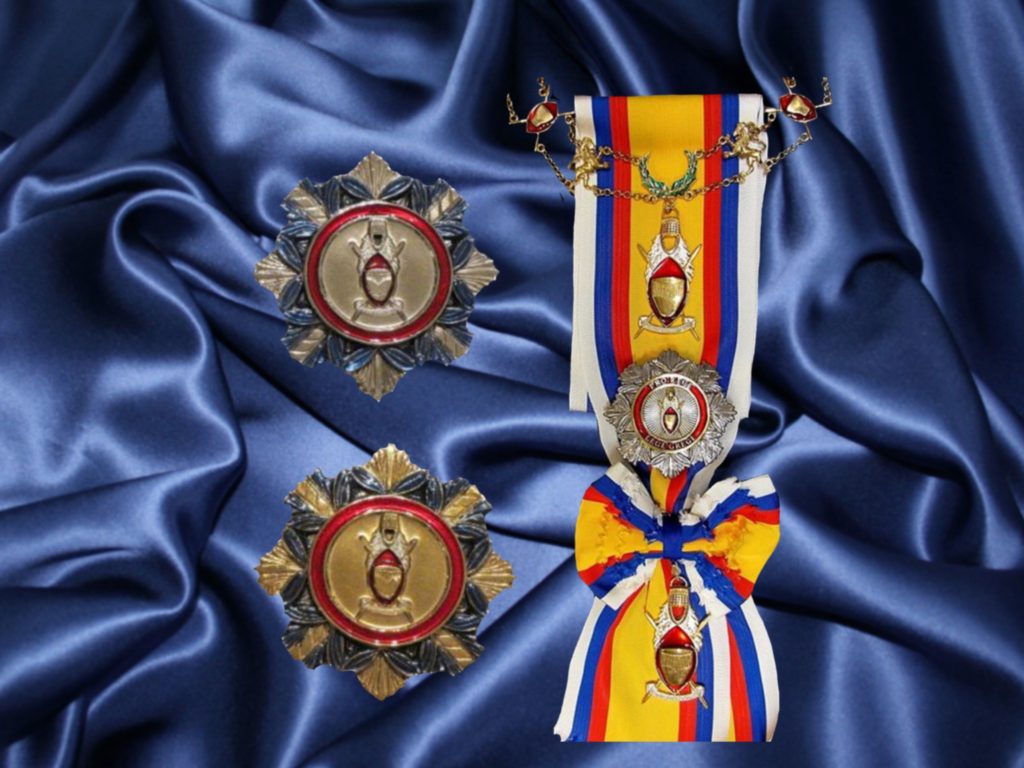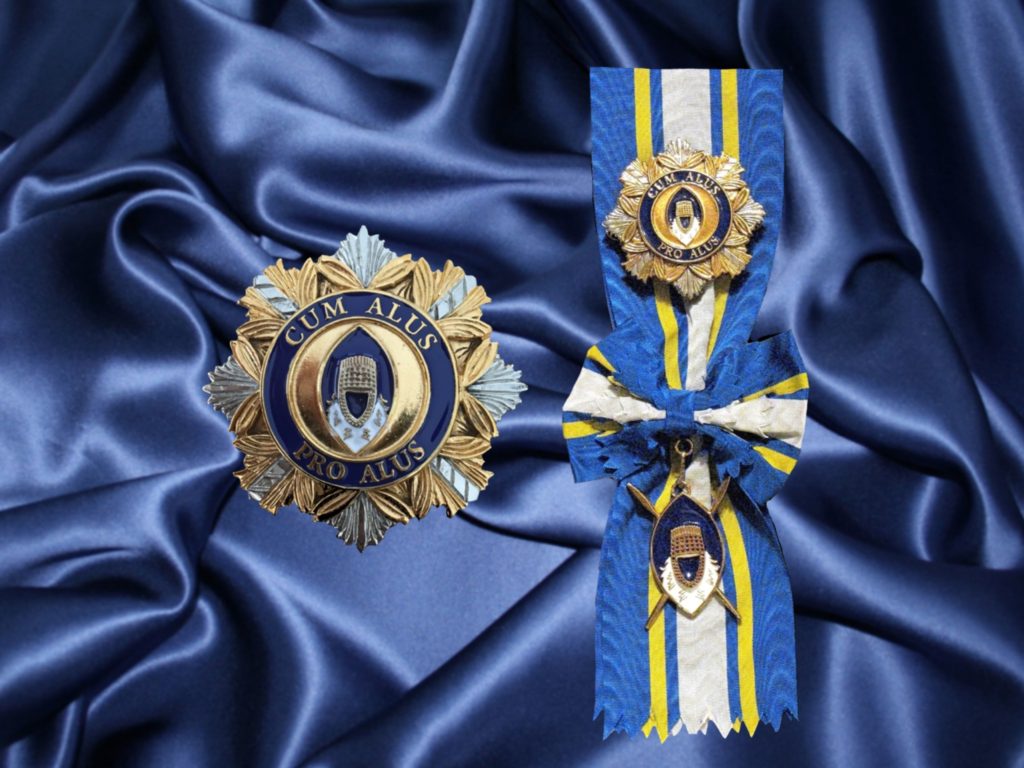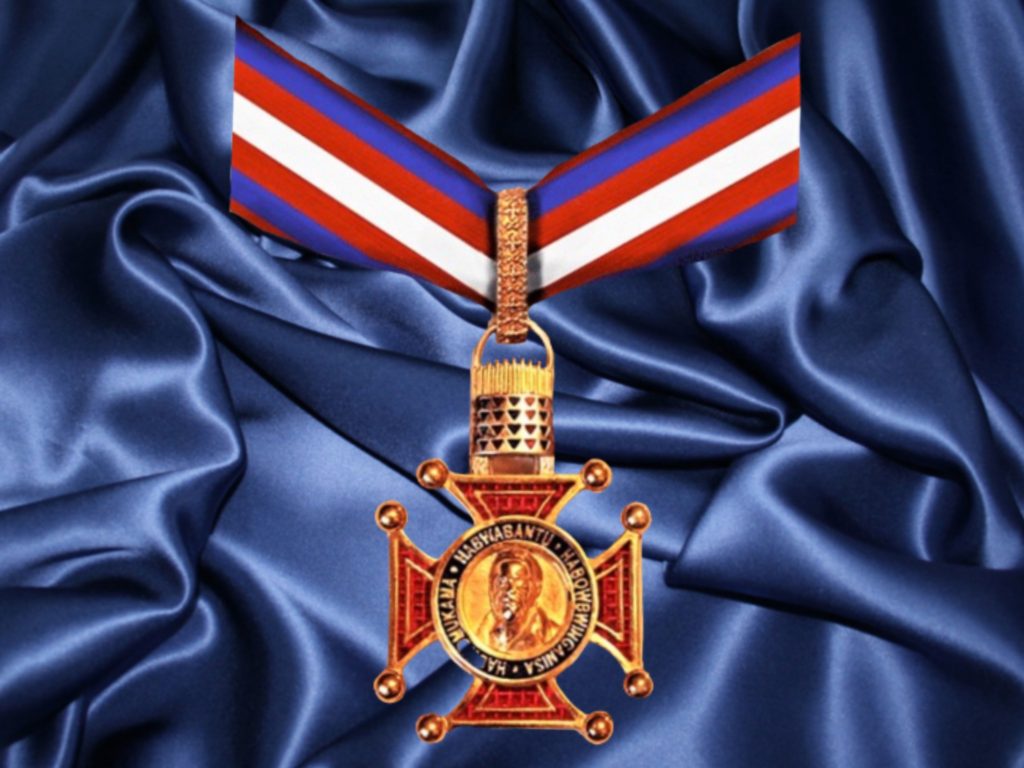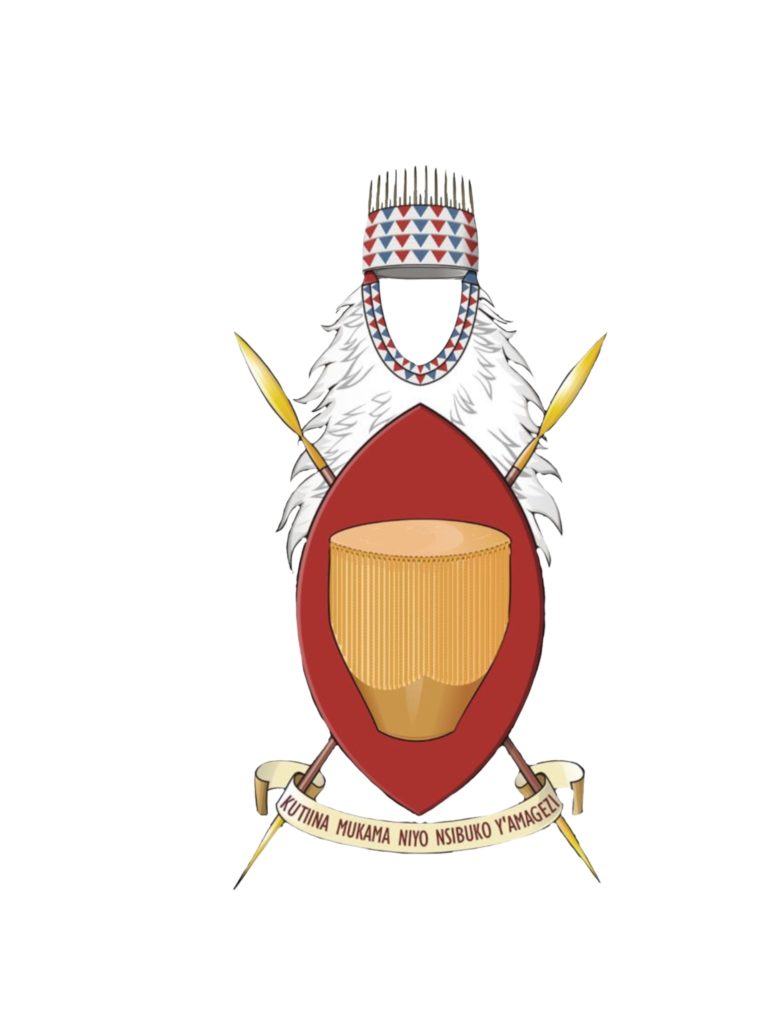Orders of chivalry
Kingdom of Bunyoro-Kitara
The Kingdom of Bunyoro-Kitara is the remainder of a once powerful empire of Kitara. At the height of its glory, the empire included present day Masindi, Hoima, Kibaale, Kabarole and Kasese districts; also parts of present day Western Kenya, Northern Tanzania and Eastern Congo.
The Kingdom has a rich history spanning over hundreds of years. It has been said that there existed in the great lakes region, one of Africa’s mightiest empires; The Empire of Kitara, Translated as “Empire of Light”.
In 1500 AD the Empire splintered, and Bunyoro-Kitara Kingdom, led by the Babito dynasty emerged as the largest and most powerful kingdom; controlling the entire region between Lake Victoria, Lake Edward, and Lake Albert.
Bunyoro-Kitara remained the most powerful kingdom in East Africa until colonial advances saw much of the Kingdom’s territory ceded and independence taken away.
After colonial rule ended in 1962, the area kingdoms, including Bunyoro-Kitara, were recognized. Unfortunately, those kingdoms lost their newly established recognition in 1967. In 1995, the constitution of Uganda formally re-instated the traditional Kingdoms, protecting them as a regional entity.
The current king, and cultural leader of Bunyoro-Kitara, King Solomon Gafabusa Iguru I, the 27th king of the Babito dynasty ascended to the throne on 11 June 1994.
Unlike the pre 1967 Omukama, who was both titular head and a political figure of the government of Bunyoro, the Omukama today is a cultural leader above partisan politics, although the King remands the titular head of the Bunyoro regional government.
King Solomon Iguru I’s mission is to give his subjects cultural leadership and to be a catalyst in the development process. His Majesty was enthroned in 1994 as the 49th Omukama of the Kingdom and 27th Omukama of the Babiito dynasty.
cultural leader
The overall welfare, cultural and economic well-being of the people of Bunyoro-Kitara is priority number one on the Omukama’s agenda. To this end, he has created The Bunyoro-Kitara Cultural Trust; and initiated a number of humanitarian, cultural and economic development projects. The Bunyoro-Kitara Cultural Trust is charged with the following functions:
To promote, uphold and defend the customs, culture and traditions of the Banyoro people.
To provide for the custody and upkeep of the Royal Regalia of Bunyoro-Kitara.
To foster and promote Runyoro (language) literature and orthography, the music, drama and dances of the Banyoro.
To promote vocational training and social income-generating development schemes for the disabled, widows, youths, school dropouts, orphans and the elderly; and the promotion of primary health care.
To establish, manage and maintain libraries, book stores and public books, periodicals and newspapers; and to carry out research about the cultural heritage of the Banyoro.
To erect, purchase or take on lease or otherwise, any schools, social centers, orphanages, mills, works and workshops for all or any of the objects of the Trust.
To conduct, hold seminars and workshops, and to provide audio visual teaching aids (including digital information technologies) to enhance knowledge, concern for and awareness of environmental problems and other objects of the Trust.
Royal Orders of chivalry
The Kings of Bunyoro employed a system of traditional awards to recognize persons providing service to the crown. This included a system of naming chieftans and other nobles. The award of the Omujwarra Kondo (Order of the Coronet-Wearer) was traditional order of merit for the Kingdom of Bunyoro-Kitara traditional award of the Omujwaara Kondo is believed to be over 500 years old.
A system of honors modeled after traditional European monarchies was created to facilitate recognition by people who are not familiar with the traditional system of honors. These awards are meant to compliment the traditional honor of the Omujwarra Kondo.

The Order of the Omujwaara Kondo
The Order of the Omujwaara Kondo (English: Order of the Coronet Wearer) is the oldest and highest royal order of the Bunyoro-Kitara Kingdom and is awarded solely by the Omukama (King) of Bunyoro. It is a single-grade honor, separated into two classes – Class I and Class II. Class I is limited to other royal families of the world and heads of state, while Class II is open to all persons.
The first recorded recipient of the Order was Kasaru, the interpreter of Omukama Rukidi of Bunyoro, who ruled in the late 15th century – Therefore, the Order is believed to be more than 500 years old. It was normal that recipients of the Order were awarded ownership of land and it was believed that they obtained a special divine power called mahano with the admission into the order.
Recipients were awarded an Ekondo (coronet) and other regalia, and had special seats during ceremonies of the Kingdom. Recipients were not allowed to eat common food like potatoes and beans, instead they were expected to follow a special diet, containing primarily meat, poultry and other finer/rare foods. Traditionally this was more an award of nobility as opposed to an order of chivalry.
The Order of the Engabu (English: Order of the Shield) is a single-grade royal order, within the Kingdom of Bunyoro in Uganda and is awarded solely by the Omukama of Bunyoro. The order was established in 2010, replacing the old Royal Order of the Crown. The name change was done to make sure that the Order of the Crown and the Order of the Coronet Wearer were not confused. The honor is junior to the ancient Royal Order of the Omujwaara Kondo. It is normally granted twice a year, once during the Empango ceremony (which most often is on June 11 each year) and the other on the birthday of the Omukama.
The recipients of The Order of the Engabu received a breast star that is 90 millimeters in diameter. This star is worn at Empango ceremonies or other appropriate formal occasions, and members of the order sit in a special place of honor during the Empango events. Originally recipients of the Order of the Engabu were required to attend the Empango ceremony within a few years of receiving the order, but as of May 7, 2014 this practice has been waived.
Similarly to the Order of the Omujwaara Kondo, the honor is inherited by the original grantee’s eldest child of the same sex at the moment of the original grantee’s death or renunciation of the honor. Intergenerational transfer rules for the honor are described in Statute 8. For male grantees, the honor passes by patrilineal primogeniture. For female grantees, the honor passes by matrilineal primogeniture.

The order of engabu

The Most Honorable Order of Omukama Chwa II Kabalega
The Most Honorable Order of Omukama Chwa II Kabalega was founded in 2010 by the Omukama of Bunyoro-Kitara Kingdom in honor of Kabalega by the Omukama of Bunyoro-Kitara. It is the third highest royal order of merit of the Kingdom of Bunyoro-Kitara and is awarded solely by the Omukama of Bunyoro.
The Order of Omukama Chwa II Kabalega (also known as The Most Honorable Order of Duty and Inflexibility of Omukama Chwa II Kabalega and Saint Thomas More) is the third highest royal order of merit of the Kingdom of Bunyoro, and is awarded solely by the Omukama of Bunyoro. The Order is one of three Orders which were established/reestablished in 2010, as a part of a modernization process in the Kingdom. It is named in honor of Omukama (King) Chwa II Kabalega of Bunyoro, who is famous for resisting colonialism during his reign.
The Order is awarded to persons who promote charity and humanity, help to provide relief from sickness, distress, suffering or danger. Also individuals are awarded who support the Bunyoro Kitara Kingdom, and in general, act in accordance with the unofficial motto, For the King, For the People, For Justice.
The Order does not have an official motto, but the unofficial motto is “Habwomukama, Habwabantu, Habowbwinganisa” (Latin: “Pro Rex, Pro Humanitas, Pro Iustitia”) (English: “For the King, For the People, For Justice”).
This section has been produced with the permission of his Royal Highness King Solomon Gafabusa Iguru I.
The Omukama (King) of Bunyoro-Kitara Kingdom was reconstituted by Statute No. 8 of 1993, enacted by the Parliament of Uganda, after the monarchy had been abolished for 27 years. Unlike the pre 1967 Omukama who was a titular head of the local government of Bunyoro, the Omukama, today, is a cultural leader with no governmental functions. His mission is to give his subjects cultural leadership, and to be a catalyst in the development process.
There are aspects of our culture that need to be improved upon, modified or even abandoned. An example is early marriages responsible for high rates of adolescent pregnancies, abortions, maternal morbidity and mortality. Today the Omukama is advocating for the population to abandon this practice. While Parliament has enacted the Defilement Act to protect minors, this legislation alone is not enough.
The overall welfare, cultural and economic well being of the people of Bunyoro-Kitara is priority number one on the Omukama’s agenda. To this end, he has created The Bunyoro-Kitara Cultural Trust; and initiated a number of humanitarian, cultural and economic development projects.
For more information regarding any of the development
projects being undertaken on behalf of His Majesty, or for more information on Bunyoro-Kitara, readers are encouraged to visit the official Bunyoro-Kitara webpage at http://www.bunyoro-kitara.org.
